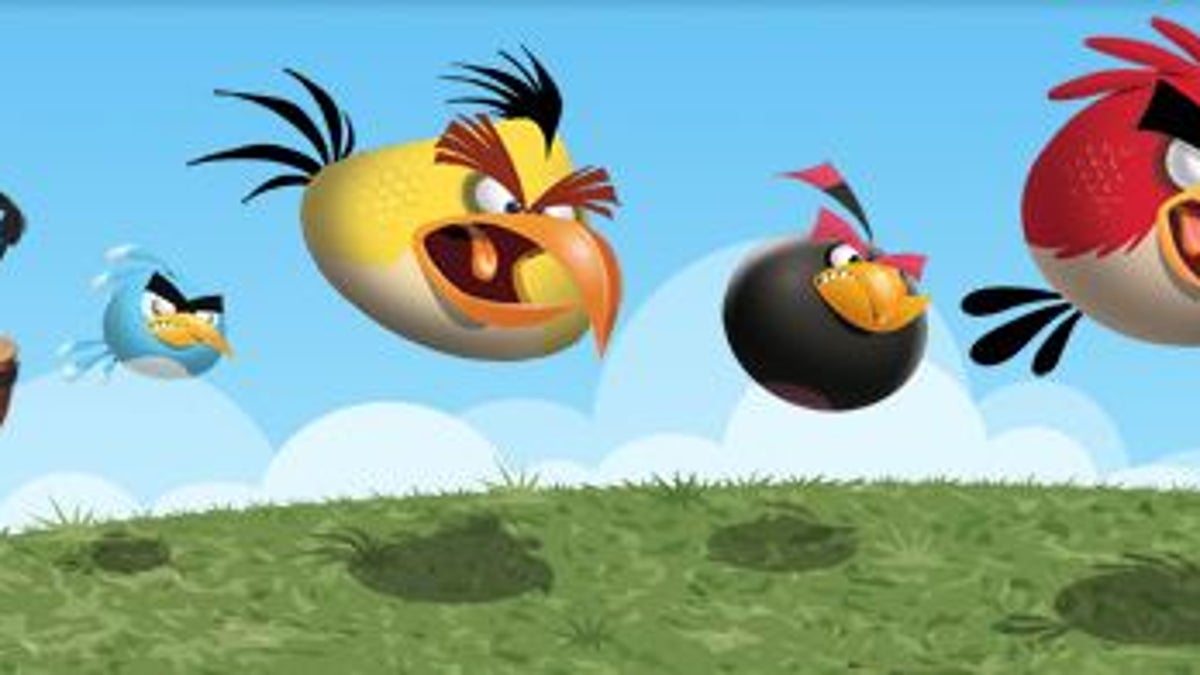Angry Birds spotlights Android fragmentation
Rovio Mobile concludes it needs to make a second Android version of its top-ranked game for lower-end devices.

The good news for Android is that it's flexible enough to reach many corners of the smartphone market. The bad news is that this can mean headaches for programmers--as the top-ranked game Angry Birds illustrated today.
Angry Birds developer Rovio Mobile has announced that it's going to create a second version of its flagship game for lower-end Android devices after finding "severe performance issues."
"With our latest update, we worked hard to bring Angry Birds to even more Android devices. Despite our efforts, we were unsuccessful in delivering optimal performance," the Angry Birds developer team said today in the blog post. "So far, we have hesitated to create multiple versions of Angry Birds for the Android platform. But judging by the feedback we have received, we feel that by providing a lightweight solution, we are doing a favor for our fans. We are currently developing a lighter solution to run Angry Birds on lower-end Android devices."
In the Android-vs.-iOS fanboy flamewars, fragmentation has emerged as a hot-button issue. And though its effects are sometimes exaggerated, it's a real issue.
In October, Apple Chief Executive Steve Jobs lambasted Android for inflicting a "daunting challenge" on developers who must reckon with the "very, very fragmented" Android environment. He cited as an example TweetDeck, Twitter client software whose developers had just detailed the "massive variety of phones and Android OS versions everyone is running."
TweetDeck's leader bridled at Jobs' characterization, though, indicating that at least for some Android's variety isn't a big problem. "We only have two guys developing on Android TweetDeck so that shows how small an issue fragmentation is," TweetDeck CEO Iain Dodsworth said on Twitter.
With Apple's relatively small number of devices to support and a more unified user interface, fragmentation certainly isn't as significant. At the same time, it isn't a nonissue on iOS: many applications don't support first-generation iPhones, and the pixel dimensions of the iPhone 4 and iPad pose complications.
Id Software, for example, has released two versions of the brand-new Rage first-person shooter game for iPhone and iPad, the HD and non-HD versions for different screen resolutions. The HD version "will have a few more hitches" running on an iPhone 3GS, "but it still plays OK," technical director and co-founder John Carmack tweeted yesterday.
Apple's growing diversity is nothing compared with the burgeoning Android market, though. Rovio Mobile listed 18 phones, many of them variations sporting different model numbers, on which its current version of Angry Birds is officially supported. Android is branching out into tablets, TVs, and potentially any number of other devices as well--cars and gaming devices, for example. There also are several versions of the Android operating system in use, with the new version 2.3, aka Gingerbread, due to arrive soon.
I can vouch for the Angry Birds performance problems on a non-supported phone. I've enjoyed the game on a Nexus One, but on the LG Optimus One I've been trying, animated action suffers from severe jitters.
It's not just different screen sizes and and processors that factor in. Two other games, Bimaru and Frozen Bubbles, are significantly impaired on the Optimus One because it lacks the trackball I'm used to on the Nexus One.
The new lighter-weight version won't be worse, just different, Rovio emphasized.
"This does not mean lighter gameplay or a lesser amount of levels, but a game experience optimized for devices with less processing power," Rovio said.
Correction at 6:19 a.m. PT to reflect that Rovio Mobile is independent. Electronic Arts acquired only its former publisher, Chillingo.
Update at 7:06 a.m. PT with details of Steve Jobs' comments about TweetDeck and Android fragmentation.

